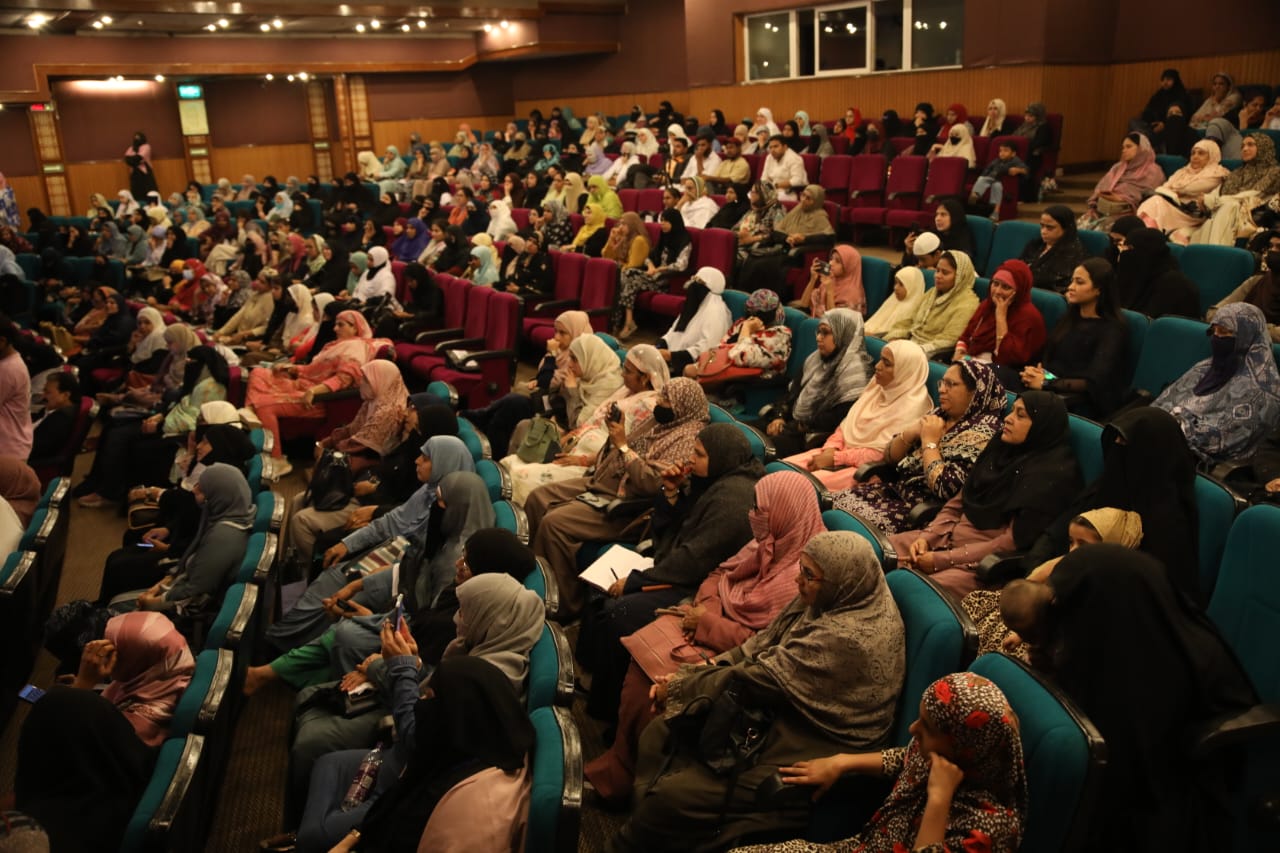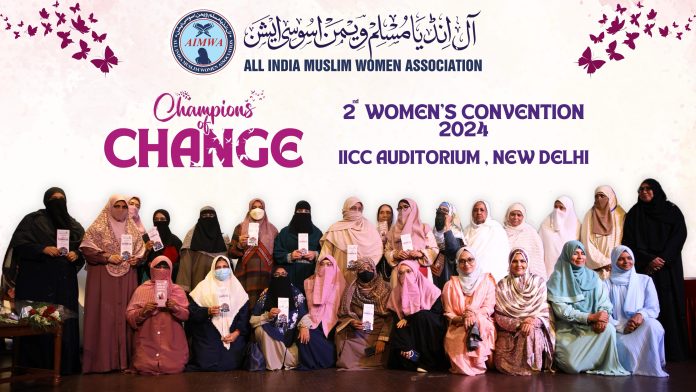By Pervez Bari
28 July 2024: Dr. Asma Zehra, President of All India Muslim Women’s Association (AIMWA), highlighted the significance of sacrifices in fulfilling societal and religious responsibilities during her presidential address at the three-day AIMWA convention in New Delhi. The event attracted over 300 delegates, including scholars, homemakers, doctors, students, and mothers from 18 states.
According to an AIMWA statement, notable attendees included former Member of Parliament Brinda Karat, Supreme Court Advocate Salman Khurshid, and newly elected Orissa MLA Sophia Firdous. The convention honored distinguished Muslim women across various fields with the “Champion of Change” awards.

Dr. Zehra emphasized the necessity of great sacrifices to achieve significant goals and uphold Islamic values. She stressed the continuous efforts needed to protect these values amidst rising challenges for Indian Muslims, including the demolition of homes, restrictions on veiled women, disrespect in educational institutions, and attempts to alter Muslim Personal Law.
Salman Khurshid praised the convention’s organizers and acknowledged the numerous challenges Muslims face in India. He underscored the importance of upholding ethics and exercising constitutional freedoms.
Brinda Karat lauded the Muslim community for having the lowest female foeticide rates and highlighted ongoing issues such as domestic violence and unpaid household work. She commended Ms. Bilquis Banu of Gujarat for her resilience in seeking justice after being a rape victim.
Sophia Firdous shared her journey to the Orissa Legislative Assembly, encouraging women to pursue their ambitions with dedication.
AIMWA’s Vision 2030
Ms. Afroz Jaffari, AIMWA Vice President, outlined Vision 2030, which aims to engage 7-8 crore Muslim women through education, reform, rights, and sustainability initiatives. This vision includes establishing forums for professionals and improving educational standards in districts with higher Muslim populations.
Ms. Uzma Parekh, General Secretary of AIMWA, presented the past year’s activities, showcasing various educational, developmental, and cultural programs for women and students.
The convention highlighted activities from 15 states, with coordinators presenting reports. Key efforts included student support, public movements, and economic initiatives. Coordinators emphasized the impact of utilizing time and skills effectively to shape the nation’s future.
A panel discussion on education featured experts like Ms. Wahida Syed, Prof. Rafique Unnisa, and Ms. Shabana Patil. Legal issues were addressed by advocates Rashida Suhail and Zakia Moin, focusing on recent Supreme Court decisions and violence against Muslim women.
Ms. Tasneem, Secretary of Youth, and Ms. Ifa Lule, Joint Secretary, introduced the Bintul Muslim Council, detailing special sessions for students and emphasizing the need for religious education and reformative gatherings.
The convention concluded with a commitment to ongoing efforts for community development, equity, and resilience, reflecting the collective concern for the welfare and future of the Muslim community.




